
New COVID-19 vaccine recommendations for this year have been released. (Image credit: Monty Rakusen via Getty Images)
Personnel changes at the US Centers for Disease Control and Prevention (CDC) have led to changes in this year's updated COVID-19 vaccination recommendations. People under 65 are faced with confusion and uncertainty about whether they and their children are eligible for vaccination in 2025–2026, where to get the shot, and whether their health insurance will cover the cost.
On Friday (September 19), the CDC's influential Advisory Committee on Immunization Practices (ACIP) said every child over 6 months old can get a COVID-19 vaccine this year, with insurance covering the cost, as long as the child or their caregiver discusses the risks and benefits of the shot with their pharmacist or other health care provider.
You may like
-
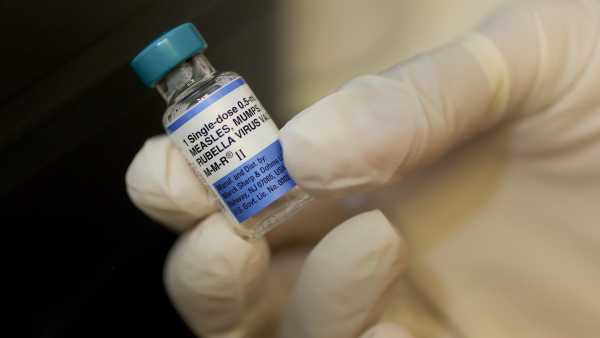
CDC committee votes to change measles vaccination recommendations for young children
-

COVID-19 vaccines for children are in limbo due to conflicting federal recommendations.
-

Robert Kennedy's hand-picked advisers will be arriving to discuss the childhood vaccination schedule. Here's what you need to know.
Here's what you need to know about the ACIP recommendations and what they might mean for people looking to get vaccinated this year.
Who is eligible for the updated COVID-19 vaccine?
The ACIP recommendations now require approval by the Director of the Centers for Disease Control and Prevention (CDC), according to their website. If approved, anyone over six months of age will be able to receive the COVID-19 vaccine for the 2025-2026 period without a prescription and at no co-payment. This applies even if the person seeking the vaccine does not have any medical conditions that increase the risk of severe COVID-19.
The Advisory Committee on Immunization Practices (ACIP)'s endorsement of the vaccine was vague rather than clear and straightforward. The committee stated that anyone 65 years of age or older could receive the COVID-19 vaccine after consultation with a healthcare professional, including a pharmacist. However, the committee emphasized that the decision to vaccinate “is based on individual decision-making… also known as shared clinical decision-making.”
“Instead of this blanket endorsement, ACIP has used similar language before,” said Jason Schwartz, an associate professor of public health at the Yale School of Public Health. The committee typically resorted to the “shared decision-making” approach when it was uncomfortable making definitive recommendations about a vaccine, he told Live Science.
However, “for everyone over 6 months of age, this vaccine will remain on the CDC vaccination schedule and should be included at no cost in private insurance plans,” Schwartz explained.
For people aged 6 months to 64 years, ACIP recommendations were the same as for people over 65: People can get the vaccine by talking with a health care professional, who may be a pharmacist.
The committee also stated that healthcare professionals should discuss the risks and benefits of the vaccine with each patient. This includes considering known risk factors for severe COVID-19 outcomes, such as age, prior infections, immunosuppression, and other medical conditions. (These risk factors are listed below in this article.) Schwartz noted that this committee proposal is not a recommendation—it is simply the committee members' opinion.
The ACIP did not make specific recommendations for pregnant women. This is despite evidence presented to the committee of the risk of severe COVID-19 illness in infants under 6 months of age, who cannot be vaccinated on their own. Vaccination during pregnancy ensures the development of protective antibodies in newborns, helping to bridge this gap.
According to ACIP general recommendations, pregnant women remain eligible for vaccination.
Do you need to see a doctor or get a prescription to get the COVID-19 vaccine?
No and no.
During the ACIP meeting, some committee members encouraged patients to contact their primary care physician, but other committee members expressed concerns about lack of access to physicians and the strain on an already overburdened health care system.
ACIP member Dr. Cody Meissner, a professor of pediatrics at Dartmouth's Geisel School of Medicine, reported that he would have to wait a year to see his primary care physician. Another committee member, Katherine Stein, an epidemiologist and professor in the Department of Population and Quantitative Health at Case Western Reserve University, noted that people at highest risk for COVID-19 complications are most likely to lack access to a primary care physician. According to Stein, approximately 30% of Americans lack access to a primary care physician.
The committee also considered requiring a prescription for the COVID-19 vaccine, but ultimately voted against it, so a prescription will not be required. The ACIP is responsible only for vaccine recommendations, and issues related to mandatory prescriptions “are not within its purview,” Schwartz said, adding that the decision rests with experts at the Centers for Disease Control and Prevention (CDC).
What are the risk factors for severe COVID-19?
According to the CDC, the following factors increase the risk of severe illness from COVID-19:
- Asthma
- Blood cancer
- Blood disorders (including sickle cell anemia)
- Cerebrovascular diseases
- Chronic kidney disease
- Some chronic lung diseases
- Some chronic liver diseases
- Cystic fibrosis
- diabetes type 1 and 2
- Gestational diabetes
- Disabilities including Down syndrome, ADHD, autism, cerebral palsy
- Heart disease
- HIV or tuberculosis infection
- Mood disorders, including depression and schizophrenia
- Dementia or neurological disease
- Parkinson's disease
- Obesity
- Physical inactivity
- Chronic liver disease
- Kidney disease
- Current or recent pregnancy
- Primary immunodeficiencies
- Tuberculosis
- Current or former smoking
- Substance use disorder
- Recipients of solid organ or blood stem cell transplants
- Use of immunosuppressants
Are there any states that deviate from federal guidelines?
Yes. However, the ACIP recommendations, as expected, will be more stringent, given the previous changes made by the CDC. Now, state-level recommendations are not significantly different from federal ones.
Earlier in September, California, Oregon, Washington, and later Hawaii formed the West Coast Health Alliance, a regional partnership designed to support the scientific integrity of public health advice on issues such as vaccination recommendations and infectious disease control.
On Wednesday (September 17), the West Coast Health Alliance published COVID-19 vaccination recommendations for healthy children aged 6 months to 2 years and pregnant women. For children aged 2 to 18 years, the alliance recommended assessing their individual risk of developing severe COVID-19 to determine whether the vaccine would be beneficial.
The West Coast Health Alliance also recommended vaccination for anyone planning a pregnancy, who is pregnant, has recently given birth, or is breastfeeding. The alliance also recommends vaccination for everyone 65 and older, everyone under 65 with risk factors, anyone in close contact with someone with risk factors, and anyone who wants to protect themselves from severe COVID-19.
Additionally, on Thursday, seven northeastern states announced the formation of the Northeast Public Health Collaborative to promote and protect evidence-based public health by collaborating on issues such as vaccination recommendations and infectious disease control. The coalition includes Maine, Massachusetts, Rhode Island, Connecticut, New Jersey, Pennsylvania, Maryland, Delaware, Vermont, and New York City, as well as New York City.
The Northeast Coalition released its COVID-19 vaccination recommendations on Thursday, based on those of the American Academy of Pediatrics (AAP), the American College of Obstetricians and Gynecology, and the American Academy of Family Physicians (AAFP). These recommendations recommend that all children aged 6 to 23 months and all adults aged 19 years and older be vaccinated.
It also specifies groups of children aged 2 to 18 years who should be vaccinated, while other children in that age range can be vaccinated at the discretion of their caregiver.
Who can benefit from the updated COVID-19 vaccine, according to scientific evidence?
COVID-19 vaccination in 2025-2026 is beneficial for everyone aged 6 months and older. This is especially relevant for children under 1 year and adults over 65, Dr. Pamela Rockwell, clinical professor of family medicine at the University of Michigan Medical School, told Live Science. Historical data shows that these groups are at highest risk of hospitalization with severe COVID-19.
Gina Koch, a certified family nurse practitioner in Missouri, said she wants everyone who wants to get vaccinated to get it.
Can people without insurance get vaccinated?
Yes. Uninsured individuals can get vaccinated by consulting with their doctor or pharmacist if new ACIP recommendations are adopted.
“The answer is always, 'Yes, but talk to your doctor,'” said Koch, who is also an associate professor and director of the graduate program in nursing at Southeast Missouri State University.
Where can I get the updated COVID-19 vaccine?
In addition to your local pharmacy, you can get the COVID-19 vaccine from your local health department or your doctor, Koch said.
Local health departments “often receive vaccines before or at the same time as pharmacies,” said Koch, who works at a rural health clinic within her state's health department. She noted that some states and counties provide vaccines to anyone who wants them, unless they have a contraindication—meaning, someone who can't get the vaccine due to an underlying health condition, for example.
“There are two counties south of here that require a prescription from a primary care physician (PCP),” she added. Therefore, in some cases, people may need to speak with their primary care physician first to receive the COVID-19 vaccine at their local health department.
She added that some state or local health departments offer free vaccines to people of all financial circumstances. Residents can look for health department announcements about vaccination opportunities in local newspapers or on television.
How can people check if their insurance will cover COVID-19 vaccinations in their state?
Rockwell advised them to contact their insurance company. If the Centers for Disease Control and Prevention endorses the ACIP guidelines, insurance companies will be required to cover the vaccine.
RELATED STORIES
“These decisions were completely reckless”: Cutting funding for mRNA vaccines will make America more vulnerable to pandemics.
— The Nobel Prize in Medicine is awarded to scientists who paved the way for the creation of mRNA vaccines against COVID-19.
— What are mRNA vaccines and how do they work?
Blue Cross Blue Shield stated that as of September 16, its current vaccine coverage aligns with the latest recommendations from several health organizations and includes COVID-19 vaccines, a company spokesperson told Live Science in an email. The company bases its coverage decisions on recommendations from professional associations such as the AAFP and AAP, as well as the CDC's ACIP.
Aetna CVS Health covers approved vaccines, including COVID-19 vaccinations, in accordance with current state and federal cost-sharing requirements, a company spokesperson told Live Science in an email. Eligible members can get the COVID-19 vaccine free of charge.
Additionally, CVS Pharmacy representatives emailed that state pharmacy laws govern where CVS Pharmacy can administer vaccinations. Based on FDA approval and recent regulatory actions by some states, CVS Pharmacy can currently offer COVID-19 vaccines without a prescription from a third-party provider in 43 states, excluding the following: Arizona, the District of Columbia, Florida, Georgia, Louisiana, Oregon, Utah, and West Virginia. If the ACIP guidelines are approved, a prescription for the vaccine will no longer be required in these seven states.
Disclaimer
This article is for informational purposes only and does not contain medical advice.
TOPICS United States
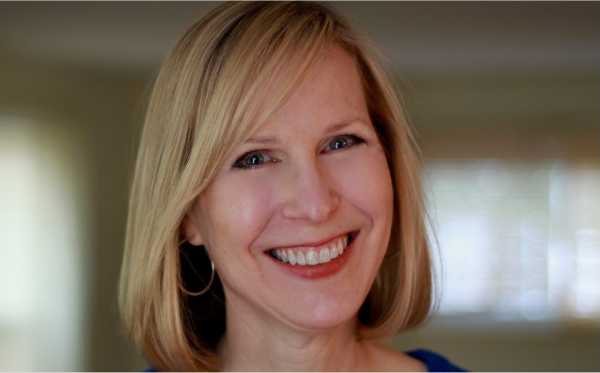
Teresa Sullivan Barger, Live Science contributor
Teresa Sullivan Barger is an award-winning freelance journalist covering health, science, and the environment. Her work has appeared in The New York Times, The Boston Globe, Los Angeles Times, AARP, CURE, Discover, Family Circle, Health Central, Next Avenue, IEEE Spectrum, Connecticut Magazine, CT Health Investigative Team, and other publications. Based in central Connecticut, she is an experienced master gardener with a passion for gardening for wildlife, especially pollinators and songbirds.
Read more
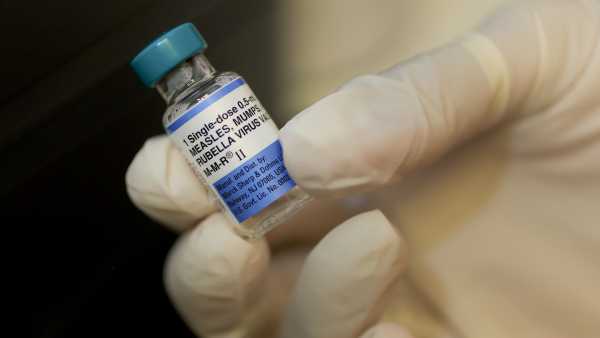
CDC committee votes to change measles vaccination recommendations for young children

COVID-19 vaccines for children are in limbo due to conflicting federal recommendations.

Robert Kennedy's hand-picked advisers will be arriving to discuss the childhood vaccination schedule. Here's what you need to know.

Thimerosal poses no health risks and is rarely used. So why are anti-vaxxers so obsessed with it?

We're debunking (many) false claims made by RFK Jr. about COVID vaccines.

A 'universal' cancer vaccine being prepared for human trials could be useful for 'all forms of cancer'
Latest news on medicine and drugs
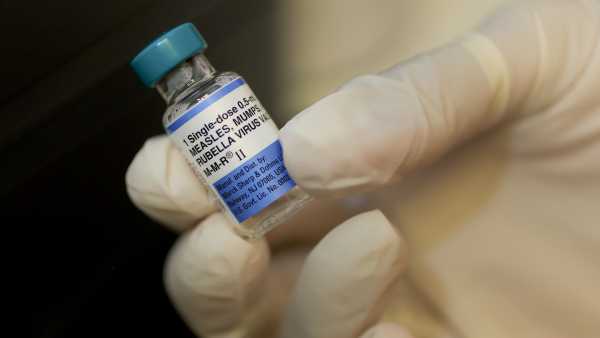
CDC committee votes to change measles vaccination recommendations for young children

Robert Kennedy's hand-picked advisers will be arriving to discuss the childhood vaccination schedule. Here's what you need to know.

An innovative drug for the treatment of cystic fibrosis, which extends life by decades, has earned its developers an “American Nobel Prize” of $250,000.

A study has found that just one dose of LSD can relieve anxiety for months.
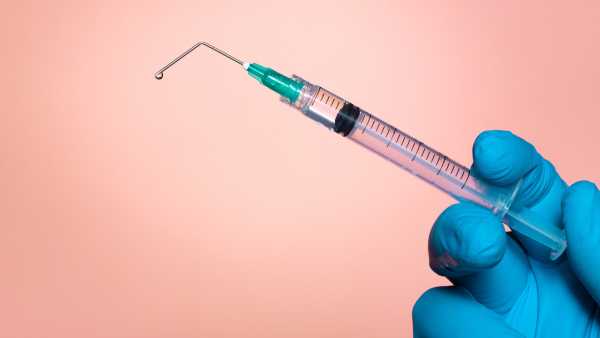
RFK Jr. wants to reform the country's “vaccine court.” Here's what's stopping him.

We're debunking (many) false claims made by RFK Jr. about COVID vaccines.
Latest news

Who's Eligible for the COVID Vaccine This Year? Everything You Need to Know

'Shocking': Black hole discovered growing 2.4 times faster than theoretical limit

If tiny lab-grown “brains” became conscious, could they be experimented on?

This week's science news: The world's oldest mummy and an ant mating with clones of a distant species

A huge source of the rare earth metal niobium was brought to the surface when the supercontinent broke apart.

A cold snap in Florida caused a Burmese python to vomit up an entire deer.
LATEST ARTICLES

1. “Shocking”: Black hole found to be growing 2.4 times faster than theoretical limit.
Live Science magazine is part of Future US Inc., an international media group and leading digital publisher. Visit our corporate website.
- About Us
- Contact Future experts
- Terms and Conditions
- Privacy Policy
- Cookie Policy
- Accessibility Statement
- Advertise with us
- Web notifications
- Career
- Editorial standards
- How to present history to us
© Future US, Inc. Full 7th Floor, 130 West 42nd Street, New York, NY 10036.
var dfp_config = { “site_platform”: “vanilla”, “keywords”: “type-news-explainer,van-disable-comments,serversidehawk,videoarticle,van-enable-adviser-
Sourse: www.livescience.com





